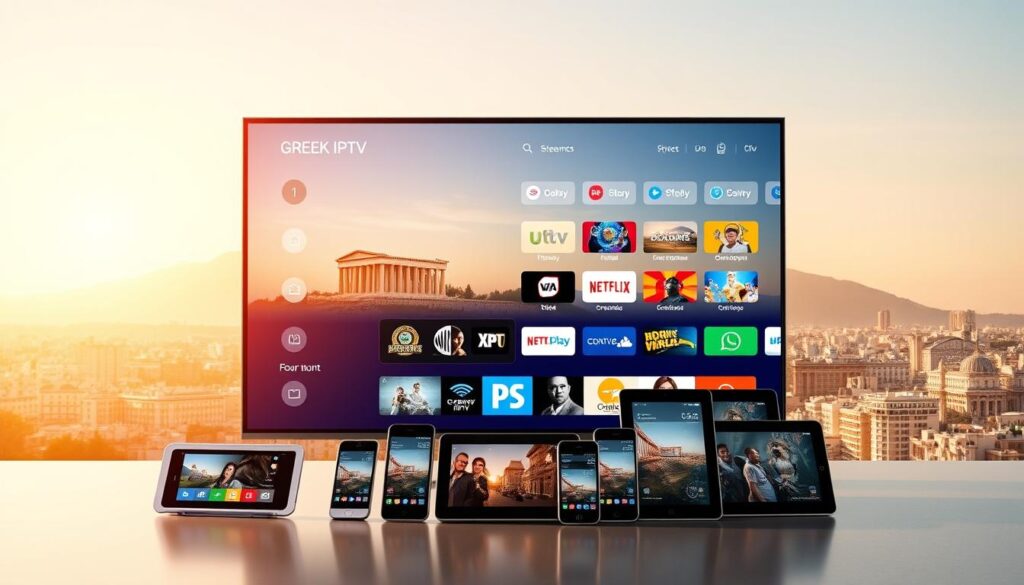RAM Screen IPTV: Everything You Need to Know for the Best IPTV Experience
IPTV is revolutionizing how we watch television. Whether you’re a sports fan, movie lover, or international news addict, IPTV offers unlimited access to your favorite content. But to enjoy smooth and high-quality streams, one technical element plays a huge role: RAM screen IPTV.
At LiveProIPTV.com, we understand how vital performance optimization is. That’s why we’re diving deep into what RAM screen IPTV really means, how it works, and how you can optimize it for the best IPTV experience.
Let’s explore the world behind the screen — literally.
What Is RAM Screen IPTV?
The term RAM screen IPTV refers to how your device’s RAM (Random Access Memory) handles video decoding and streaming through the IPTV interface. Think of it as the backstage worker that ensures the IPTV platform performs without buffering, freezing, or crashing.
In simple terms:
RAM is your device’s short-term memory.
Screen refers to what’s displayed — your streaming window.
IPTV delivers content via internet protocol.
When you combine them, RAM screen IPTV is about how memory resources affect what you see when watching IPTV content.
Why Is It Important?
Streaming IPTV on a device with low RAM or improperly configured screen memory can lead to:
Laggy performance
Poor image quality
Delayed audio/video sync
App crashes
That’s why understanding and optimizing RAM screen IPTV is critical.
How RAM Affects IPTV Streaming
1. Buffer Management
RAM stores temporary data, including buffered video content. When IPTV services like LiveProIPTV stream video, parts of the data are held in RAM for quick access. This buffer ensures:
Seamless playback
No video stuttering
Quick channel switching
The more RAM available, the larger the buffer capacity — meaning smoother streams.
2. Decoding Power
Modern IPTV apps decode HD, Full HD, and even 4K content. Decoding such high-resolution streams is RAM-intensive. If your RAM is limited, it forces your device to rely on slower storage memory, creating lags.
3. Multitasking Capabilities
Do you switch between IPTV and browsing apps? Or maybe you run IPTV while screen-mirroring? Then RAM plays a vital role. More RAM = better multitasking without compromising stream quality.
How to Optimize RAM Screen IPTV for Best Results
To get the most out of RAM screen IPTV, follow these proven tips:
1. Use Devices with Adequate RAM
For HD Streaming: Minimum 2GB RAM
For Full HD/4K Streaming: 4GB RAM or more
Android TV Boxes, Firestick 4K, Nvidia Shield, and Smart TVs are top choices when paired with sufficient RAM.
2. Clear Cache Regularly
IPTV apps store data in RAM caches. Over time, this can eat up memory. Use tools like:
Android Cleaner Apps
Built-in memory optimizers
Reboot your device regularly
Clearing cache enhances your RAM screen IPTV responsiveness.
3. Close Background Apps
Apps running in the background consume RAM. Before launching IPTV:
Close unused apps
Disable app auto-start features
Avoid resource-heavy apps while streaming
This ensures your IPTV app gets priority access to RAM.
4. Update Your IPTV App
The latest versions of IPTV apps, especially LiveProIPTV’s recommended players, are optimized for efficient RAM usage. Older versions may lack memory management improvements.
Always download updates to keep your RAM screen IPTV setup fresh.
5. Adjust Video Quality Settings
If your device struggles with Full HD or 4K:
Lower stream resolution
Disable auto-quality settings
Switch to SD or 720p temporarily
This frees up RAM and reduces decoding pressure.
The Best Devices for RAM Screen IPTV Performance
Here are some top devices recommended by LiveProIPTV.com:
| Device | RAM | Best For |
|---|---|---|
| Nvidia Shield TV | 3GB | 4K Streaming |
| Fire TV Stick 4K | 2GB | HD/Full HD Content |
| Xiaomi Mi Box S | 2GB | Casual Streaming |
| Android Box 9.0+ | 4GB+ | Gaming + IPTV |
| Samsung Smart TV | Varies | Integrated IPTV |
Always verify the RAM specifications before purchasing.
Common Issues Related to RAM Screen IPTV and How to Fix Them
❌ Issue 1: Frequent Buffering
Fix: Increase available RAM by closing apps or rebooting.
❌ Issue 2: Low Video Quality
Fix: Change stream settings or use a device with more RAM.
❌ Issue 3: App Crashing
Fix: Update app, clear cache, or reinstall.
❌ Issue 4: Delayed Audio
Fix: Free RAM by disabling unnecessary services.
If you still experience issues, reach out to LiveProIPTV.com’s support team — we help you identify if it’s device-related or app-side.
FAQ About RAM Screen IPTV
❓ Does More RAM Mean Better IPTV Performance?
Yes. More RAM allows larger buffer sizes and smoother decoding, leading to better streaming.
❓ Can I Upgrade RAM on My Smart TV?
No, most Smart TVs have fixed hardware. If performance is poor, consider using an external Android TV box with higher RAM.
❓ How Much RAM Do I Really Need?
2GB is sufficient for basic HD channels.
3–4GB is ideal for Full HD/4K, fast switching, and screen mirroring.
❓ What’s the Difference Between RAM and Storage?
RAM is short-term, used for active processes like IPTV streaming. Storage holds files and apps. You need both, but RAM directly impacts screen performance.
Final Thoughts: Enhance Your Experience with Proper RAM Screen IPTV Setup
Optimizing your device for RAM screen IPTV is no longer optional — it’s essential. Whether you’re watching live sports, international channels, or binge-watching your favorite series, a lag-free, high-quality stream makes all the difference.
At LiveProIPTV.com, we prioritize your IPTV satisfaction by offering:
Premium IPTV plans
Device compatibility guides
24/7 customer support
Recommendations tailored to your system
So, don’t let poor RAM slow you down. Upgrade your setup. Stream smart. And make every screen count.
Need help configuring your IPTV device? Visit www.liveproiptv.com — your streaming satisfaction starts here.

